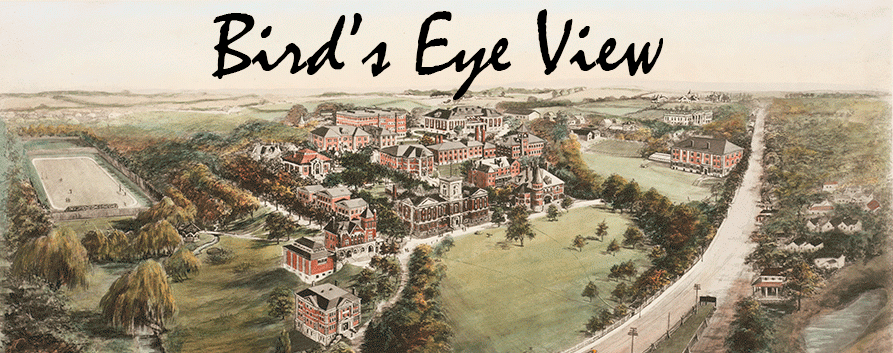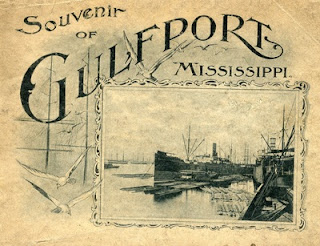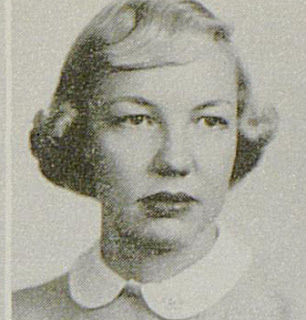President Otis A. Singletary, born 99 years ago today, served as UK President from 1969 to 1987. Between his leaving the presidency and his death in 2003, I had the good fortune to conduct nearly 100 hours of interviews with President Singletary about his life and career.
I have always been intrigued by the childhood influences on leaders. In our first interview in 1987, President Singletary talked about his childhood in Gulfport, Mississippi. After his parents divorced, he recalled fondly living with his maternal grandparents, John “Scottie” and Annie Jones Walker at 2010 23rd Avenue. In addition, his grandmother’s father, John Z. Jones also came to live with them. Both men had a tremendous influence on young Otis.
Great-grandfather
Jones, whom Singletary called “Dadda” was a Welchman who had spent much of his
life at sea and immigrated to the United States in 1900.
I remember my
grandmother told us Dadda would be coming to live with us. He
just appeared all of a sudden one day. He got out of a taxi cab and
he had a sea chest and a sea bag and was dressed in his navy blue
double-breasted blazer with the gold buttons and his cap. That old
rascal was a remarkable physical specimen and a great figure of a man.
He was the first honest-to-God character that I ever met up close. They built a little
house for him out back. Not unlike a lot
of Welshmen, he was very, very pious in his church observances. He got a heavy dose of religion and had been
to sea all those years, so I guess he was catching up on going to church.
Dadda used to dress up
on Sunday. He had an old cane and
he would stride, not walk. He had
flowing golden-colored hair that was turning white that hung down from that
captain’s cap and a full white mustache.
He cut a magnificent figure. He
was something special.
We had fireplaces throughout the house and we chopped our own
wood. We had a big chopping block out in the back yard and we would
take an ax and split those logs and cord the wood. I remember when Dadda
was in his eighties he would strip down to his waist, take that ax, and fling
that thing. He could still split more wood in an hour than I could
in a week.
Dadda was a very
different kind of person and I would beg him to tell me stories. He loved to
talk about his time at sea. He had a special
feel for the sea and he enjoyed talking about the storms, the cold, and the
beautiful tropical seas. He had been in
all of them. He had been all over the
world. I am sure he embellished those
stories, but they were really great.
I remember one year for
Christmas I got the Book of Knowledge which contained beautiful color pictures
which left such an impression on me. I would find a
particularly interesting picture and I would ask Dadda, “Did you ever see
this?” I'm sure a lot of it he had never seen, but he would make you
believe he had seen it. He would tell me all about what was in the
picture. Maybe he had seen it, who knows?
Great-grandfather
Dadda died in 1932 but left with young Otis a love of the sea. Singletary would spend a year at sea during
his college years working on an oil tanker and later served in the Navy during
World War II.
Grandfather, John “Scottie” Walker, had the most influence on President Singletary’s early life. After emigrating from Scotland to Gulfport in 1888 he worked as a stevedore at the Gulfport docks.
My grandfather, John
“Scottie” Walker was born in Scotland and ran away from home and came to this
country when he was a young man. His father was in the shipbuilding
business back in Scotland and so he found a port city over here. I
don't know how he found the Mississippi Gulf Coast, but he did.
 |
| John "Scottie" Walker |
Scottie was a diminutive little man and just as neat as a
pin. He always wore a black suit and vest and a white shirt with a
little black bow tie and he had that little black hat with the little four
indentations. He was a folk figure and everybody knew him. He was a representative for Waterman
Steamship Lines. He was my tie to that whole maritime complex in Gulfport.
I remember he had a green thumb and grew some of the
finest pecan trees. He also had pear trees and he even had some of
the huge orange Japanese persimmon trees. He liked to do things like
that.
Scottie smoked a pipe all
the time and he had a great trick. When he had finished his can of
Prince Albert he would always put a nickel or a dime in it and place it
somewhere around the house where I might find it. Also, every single
day that he came home from work he stopped by the little drugstore in town and bought
some milk chocolate candy for me. I would see him coming down the
street and boy I’d go after him and start reaching in his pockets because I
knew he had something good. I can still see those little white bags
of candy.
We would sometimes play hooky from school and ride our bikes down
to the pier if we knew there was a Chinese or Japanese ship or something exotic
like that in port. And he would take us on board and let us watch
them unload the cargo or load it, whatever they were doing. He knew
all those people on those ships as they came and went. I remember
him taking us into the galley on one of those old Chinese vessels and having
the cook fix us up all that fancy food. That was a big treat for
me. He would always scold us for cutting school and then he never
would tell on us.
He was just a thoughtful, nice man. Because of my
mother and father's divorce, my grandfather was the relevant male in my life
early on. He was a gentleman.
I did love that
wonderful, little old man. He encouraged
me a lot in the boyish games. He had a
theory that games were good for boys and he wanted me to do some of all of
them. He was a great baseball fan and we
would listen to football and baseball on his Atwater Kent radio.
He once said to me that
he thought that reading books would give you a certain kind of thing, and that
working would do a certain kind of thing, and that playing games would do a
certain kind of thing for you. That each
gave you something that was very different and I think he was right.
I went out for the
boxing team even though I was a little small then. I won my first boxing match and I wanted to
tell him because I knew how proud he would be.
He had died during my match. So
that's kind of curious. His influence on
me is very strong, very strong. Of all
the people in my childhood he was probably the most influential person in a
number of ways.
John
“Scottie” Walker’s death in 1938 was a huge personal loss for President Singletary. Nevertheless,
he cherished the memories of his grandfather for the rest of his
life.








